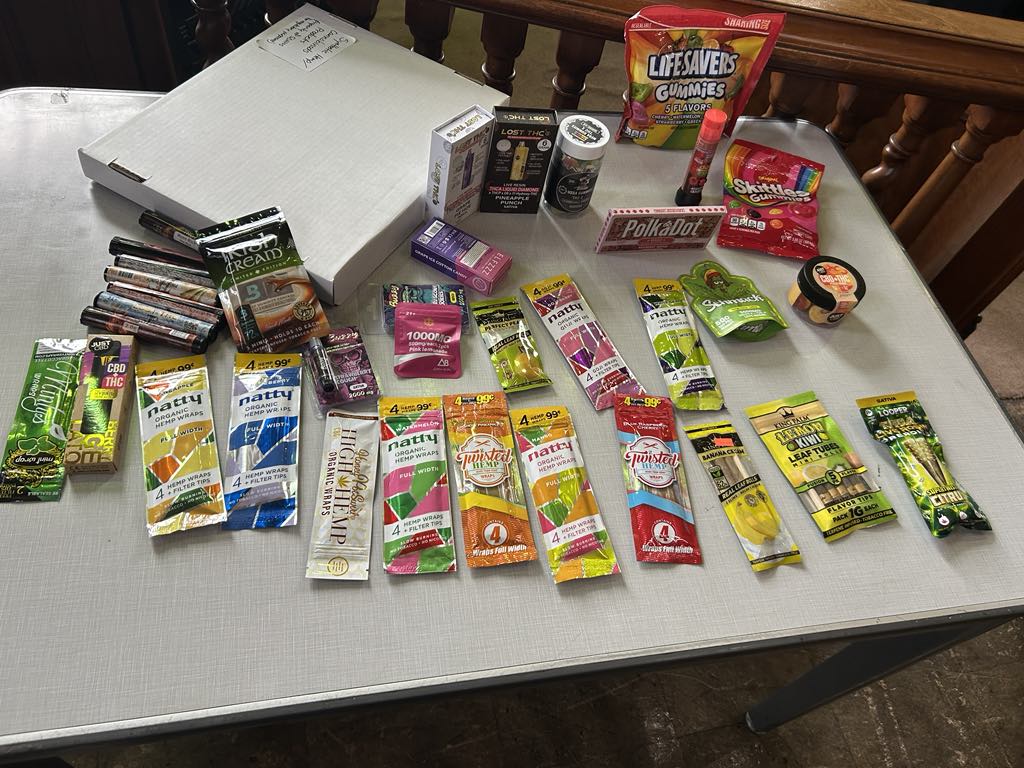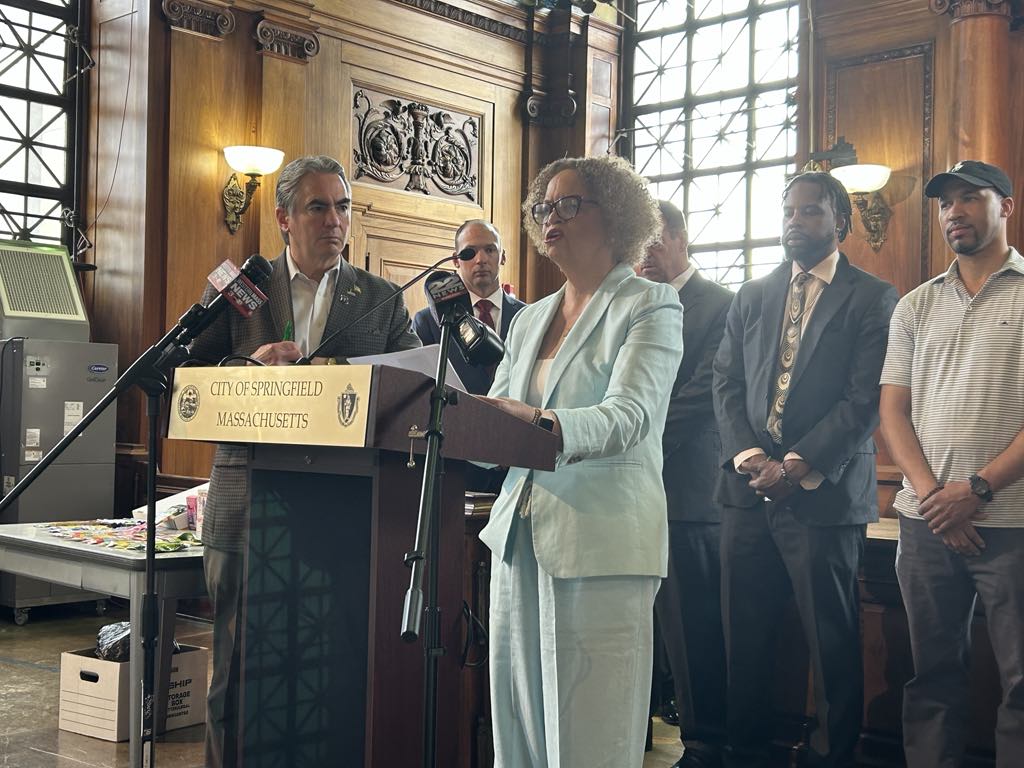Health and Human Services Commissioner Helen Caulton-Harris joined Mayor Domenic Sarno and other from the city to introduce a new ordinance that aims to eradicate “gas station weed” throughout Springfield.
Reminder Publishing photo by Ryan Feyre
SPRINGFIELD — Springfield is looking to crack down on unregulated, untested THC products — commonly known as “gas station weed” — that city officials say is targeting the youth and putting the public health of residents at risk.
Mayor Domenic Sarno and officials gathered on June 4 to announce an ordinance that would make the manufacturing, selling and distribution of these products illegal.
“There’s been a host of bad actors that have engaged in unlawful behavior, circumventing the state’s licensure and regulatory process for cannabis and taking advantage of a lack of enforcement by federal and state authorities,” Sarno said at the press conference. “These bad actors are producing unregulated, untested products that contain artificially elevated levels of THC, which create the same effects as legal marijuana, and in many cases, also contain dangerous chemicals and heavy metals, bacteria and mold.”
Currently, dispensaries licensed and regulated by the Cannabis Control Commission can sell marijuana in the state of Massachusetts. However, in recent years, consumers across the state and in the city of Springfield have been exposed to hemp-derived products with “artificially elevated levels of THC” across gas stations, bodegas, liquor stores and retail shops.
Although they carry similar effects associated with typical marijuana products, city officials say these products are more dangerous, not only because of their unregulated nature, but also because they can resemble candy or other snacks due to deceptive packaging.
In some cases, city officials say, the packaging won’t even have ingredients delineating what is inside the product: sometimes, the description of the contents will just say, “100% magic.”
“That was the ingredients [of one of the packages],” Sarno said. “Despicable.”

Reminder Publishing photo by Ryan Feyre
Even though little research about synthetic cannabinoids exists, Health and Human Services Commissioner Helen Caulton-Harris said perpetrators are creating a stronger psychedelic effect in their products by chemically converting the delta-8 and delta-10 components found in trace amounts in THC.
An overview of synthetic cannabinoids from the Centers for Disease Control and Prevention says that these illicit products bring clinical risks like neurological agitation, confusion, seizures, stroke and suicidal thoughts, among other things.
Both Caulton-Harris and Sarno spoke of the harmful effects these synthetic cannabinoids have on the youth, specifically.
“I believe [these drugs] are considered gateway drugs,” Caulton-Harris said. “When our youth have access to these kinds of cannabinoids or synthetic cannabinoids, the impact for their future is something we all should take extremely serious.”
Aside from making the drugs illegal, the ordinance would also authorize police and health inspectors to confiscate the product and institute a $300 fine per item, the highest the city can implement, according to Springfield City Solicitor Stephen Buoniconti.
That equates to a $3,000 fine for 10 pieces of product and a $30,000 fine for 100 pieces, Sarno said.
According to officials at the June 4 conference, the state was working on similar legislation as of press time, but Sarno and Buoniconti believe the commonwealth’s version of it “dances around the subject.” Meanwhile, Buoniconti said their ordinance attacks the unregulated “wild, wild west” head-on.
As of right now, Caulton-Harris said there are about 12 to 13 places in Springfield that are selling these illegal products. She shared that the city knows where they are and what products are being sold there, but did not divulge the names of the places.
“We have lists of those stores and facilities,” Caulton-Harris said.
In addition to harmful health effects, officials say that synthetic cannabinoids are taking profits away from permitted businesses. Lamont Clemons, the owner of Primus Cannabis on State Street, thanked the city for having his back and touched on the importance of protecting people.
“All we’re really trying to do here is protect the residents, the children [and] our potential clients that are coming in to the building,” Clemons said.
The ordinance will go in front of the City Council for a vote at a future meeting. Ward 1 City Councilor Maria Perez and Ward 4 City Councilor Malo Brown attended the press conference to express their support for the legislation.
“I’m going to charge myself to educate the community on this very serious matter,” Perez said. “It concerns me.”
Editor’s note: In a previous version of this article, a quote from City Solicitor Stephen Buoniconti said that Springfield was the first community in the state to pursue a ban on synthetic cannabinoids, this is incorrect as Belchertown instituted a ban on the substances in 2024.



You must be logged in to post a comment.